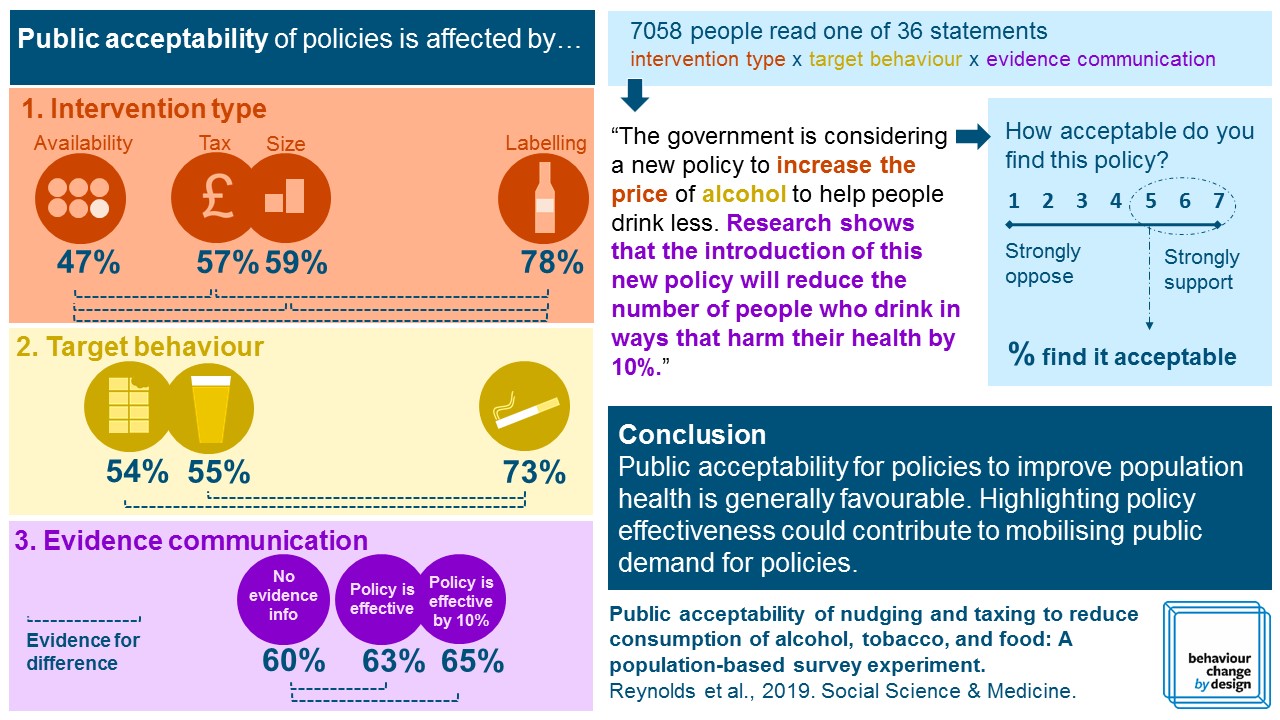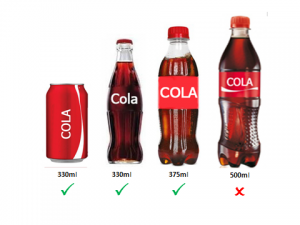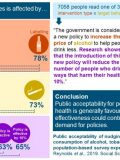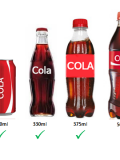Our work on public acceptability
One of our aims at the BHRU is to identify effective interventions to help steer people towards more healthier behaviours. Our work on public acceptability of interventions designed to change behaviour(s) focuses on gaining insight not only into how acceptable some of these health interventions are, but additionally what factors might influence how acceptable people find such interventions.
Key Studies:
Smoking, and excessive consumption of alcohol and unhealthy snacks are leading causes of years of life lost globally. Overall 60% supported these policies with support varying by policy and behaviour. Putting graphic warning labels on products received strongest support (from 78%), followed by reducing product size (59%), then taxing the product (57%), and finally reducing the availability of the product (47%). All these policies received greater support when applied to tobacco than when applied to alcohol or snacks. Communicating policy effectiveness increased support with between 3% and 5% more people supporting a policy when informed it is effective. Quantifying the effectiveness did not add to the impact of a simple statement asserting that a policy was effective. Highlighting effectiveness could contribute to mobilising public demand for policies with potential to improve population health. To read the findings of the study in full, click here. Reynolds, J. P., Archer, S., Pilling, M., Kenny, M., Hollands, G. J., & Marteau, T. M. (2019). Public acceptability of nudging and taxing to reduce consumption of alcohol, tobacco, and food: A population-based survey experiment. In a series of experiments involving nearly 10,000 people, the researchers tested ways to communicate quantitative evidence of the effectiveness of a hypothetical tax on confectionery to help tackle childhood obesity. The researchers used results from the first two experiments to improve their infographics and the accompanying numerical information provided to study participants. The third experiment, using the improved materials, showed increased support for the hypothetical tax, equivalent to increasing the number who support the tax from 45% to 49%. Communicating quantitative evidence of policy effectiveness and support for the policy: Three experimental studies. Reynolds JP, Pilling M, Marteau TM. Soc Sci Med. In this focus group study, three themes emerged for the low acceptability of price increases to reduce consumption of alcohol and fast foods: Highlighting evidence of intervention effectiveness might increase the acceptability of price interventions. Public attitudes towards pricing policies to change health-related behaviours: a UK focus group study. Somerville, Marteau, Kinmonth & Cohn, 2015. Although, highlighting the non-conscious nature of nudges does not alter their acceptability, the study found that taxing sugary drinks was only acceptable to a minority. But for both nudging and taxing, the acceptability of the intervention increased the more effective participants judged them to be. This suggests people are prepared to trade off dislike of an intervention for achieving a valued goal, such as tackling obesity. Public acceptability in the UK and USA of nudging to reduce obesity: the example of reducing sugar-sweetened beverages consumption. Petrescu, Hollands, Couturier, Ng & Marteau, 2016. While our study found differences in acceptability depending on intervention type (affecting price, availability or advertising), acceptability increased when information on effectiveness was given Highlighting the effectiveness of interventions could increase their acceptability. Public acceptability of population-level interventions to reduce alcohol consumption: A discrete choice experiment. Pechey, Burge, Mentzakis, Suhrcke & Marteau, 2014. We found that people regarded interventions that were least intrusive (but often also the least effective) such as giving information as the most acceptable and price interventions (which can be very effective) as the least acceptable. We are now studying how to increase public acceptability of the most effective interventions. Public acceptability of government intervention to change health-related behaviours: a systematic review and narrative synthesis. Diepeveen, Ling, Suhrcke, Roland & Marteau, 2013. Public acceptability of nudging and taxing to reduce consumption of alcohol, tobacco, and food
 Promising interventions include nudging – changes to the physical environment to “nudge” people toward healthier behaviours – and taxation. Implementing such interventions often requires government intervention, which is made more likely by public support. We examined support for these interventions in a survey with an experimental design involving 7058 English adults.
Promising interventions include nudging – changes to the physical environment to “nudge” people toward healthier behaviours – and taxation. Implementing such interventions often requires government intervention, which is made more likely by public support. We examined support for these interventions in a survey with an experimental design involving 7058 English adults.Does communicating evidence of policy effectiveness influence public support for the policy?
 Increasing the prices of products that harm health is an effective intervention for changing behaviour to improve health, but public support for such interventions is generally low. When a proposed intervention is unpopular, yet has the potential to have an impact, policy makers may seek to increase public support. Research associate Dr James Reynolds, working with Professor Theresa Marteau and Dr Mark Pilling at the Behaviour and Health Research Unit, set out to test one set of promising approaches for doing so.
Increasing the prices of products that harm health is an effective intervention for changing behaviour to improve health, but public support for such interventions is generally low. When a proposed intervention is unpopular, yet has the potential to have an impact, policy makers may seek to increase public support. Research associate Dr James Reynolds, working with Professor Theresa Marteau and Dr Mark Pilling at the Behaviour and Health Research Unit, set out to test one set of promising approaches for doing so.Why don’t people like government increasing prices on unhealthy items?
 Price interventions can be one of the most effective ways of changing behaviour – particularly for reducing consumption of tobacco and alcohol – but public support for these interventions is usually low.
Price interventions can be one of the most effective ways of changing behaviour – particularly for reducing consumption of tobacco and alcohol – but public support for these interventions is usually low.
How does the public judge nudging to cut sugary drinks?
 How acceptable do people find nudges such as reducing bottle sizes of sugary drinks to prevent obesity? Does highlighting the non-conscious nature of nudging affect their acceptability? The results of our study, conducted with over 2000 UK and US participants, show that most people find such “nudges” to be acceptable interventions to prevent obesity.
How acceptable do people find nudges such as reducing bottle sizes of sugary drinks to prevent obesity? Does highlighting the non-conscious nature of nudging affect their acceptability? The results of our study, conducted with over 2000 UK and US participants, show that most people find such “nudges” to be acceptable interventions to prevent obesity.Does information about intervention effectiveness increase acceptability?
 How acceptable people find different interventions to reduce alcohol consumption varies depending on the type of intervention and its effectiveness.
How acceptable people find different interventions to reduce alcohol consumption varies depending on the type of intervention and its effectiveness.Do the most effective interventions have the most public support?
 We carried out the first systematic review of the literature on public attitudes to government interventions to reduce tobacco and alcohol use, increase physical activity and/or improve diet. The review included 200 studies.
We carried out the first systematic review of the literature on public attitudes to government interventions to reduce tobacco and alcohol use, increase physical activity and/or improve diet. The review included 200 studies.
Publications related to public acceptability of interventions designed to change behaviour(s)
2019
2018
2017
2016
2015
2014
2013






